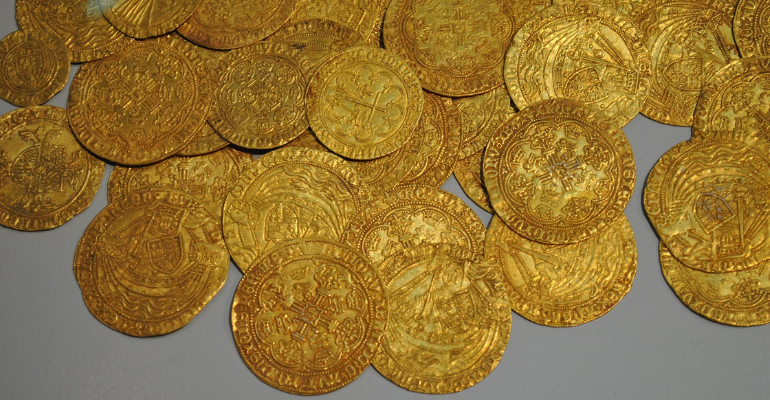Reference: http://kraddrdd2.blogspot.co.uk/2018/05/blog-post.html?m=1
‘Abdullāh ibn Abbās, radiaAllāhu ‘anhu, said: “The Prophet ﷺwas the most generous of people, and he was the most generous when he would meet Jibrīl. He would meet him every night of Ramadān, he would revise the Qur’ān with him. When he would meet him, the Messenger of Allāh was the most generous in doing good than even a strong wind.” [1]
The meaning of “generosity” is an abundance of giving.
His generosity increased in Ramadān due to five reasons:
First: Because it a virtuous month in which the reward for charity is multiplied, and similarly [the reward] for performing acts of worship.
Az-Zuhri said: “A single statement of tasbīḥ (glorification) in Ramadān is better than a thousand statements of tasbīḥ in the other months”. [2]
Second: It is a month of fasting, so generously giving to other people helps them break their fast, similarly with suḥūr.
Third: the bestowing of goodness increases in Ramadān, so the Messenger ﷺ wanted to do a similar action to Allāh in his kindness and generosity.
Fourth: An abundance of generosity was a form of gratitude for Jibrīl, alayhi as-salām, who constantly visited him every night.
Fifth: When he would revise the Qur’ān [with Jibrīl] every night of Ramadān, his focus towards the Hereafter would increase, thus, he would give whatever his hands possessed from the worldly life. [3]
Ibn Qayyim, rahimahullah, said: “From his guidance in the month of Ramadān was to increase in different types of worship. Jibrīl, alayhi as-salām, would revise the Qur’ān with him in Ramadān. Whenever Jibrīl met him, he would become more generous in goodness, even more than a strong wind. He was the most generous of people, and he was further generous in Ramadān. He would increase in charity, showing goodness to others, recitation of the Qur’ān, ṣalāh, dhikr and i’tikāf. [4]
He would specify Ramadān with [an amount of] worship that He would not perform in other months; in fact, he would sometimes continuously fast for days without breaking it [5] because he wanted to utilise the hours of his night and day in worship.” [6]
Footnotes
[1] Narrated by Ibn ‘Abbās; Collected by al-Bukhārī & Muslim.
[2] Narrated by at-Tirmidhī No. 3472.
[3] Refer to: ‘Kashf Mushkil as-Saḥīḥayn’ by Ibn Al-Jawzī, Vol 2 Page 213
[4] I’tikāf: To limit oneself to the masjid in devotion to the worship of Allāh.
[5] The act of continuously fasting throughout the day and night over a few days without breaking it is called Wiṣāl. The Prophet ﷺ would sometimes do this, however, he forbade his Ummah from doing so. He said, “Do not continuously fast [throughout the day and night]. The companions replied: “But you do so, O Messenger of Allāh”.
He replied, “I am not like you, my Lord feeds me at night and gives me to drink.” [Narrated by Abu Hurayrah; Collected by al-Bukhārī & Muslim].
[6] Zād Al-Ma’ād Vol 2 Page 30.
العنوان: جوده النبي ﷺ في رمضان
المرجع: http://kraddrdd2.blogspot.co.uk/2018/05/blog-post.html?m=1
عن عبد الله بن عباس – رضي الله عنهما – قال:
« كان رسول الله – صلى الله عليه وسلم- أجودَ الناس، وكان أجودَ ما يكون في رمضان حين يلقاه جبريل، وكان يلقاه جبريلُ في كل ليلة من رمضان، فيُدارسه القرآن، فَلَرَسولُ الله حين يلقاه جبريل أجود بالخير من الريح المرسلة ». أخرجه البخاري رقم(1902)، ومسلم رقم(2308).
الْجُود: كَثْرَة الْإِعْطَاء. وَإِنَّمَا كثر جوده -صَلَّى اللَّهُ عَلَيْهِ وَسَلَّمَ- فِي رَمَضَان لخمسة أَشْيَاء:
أَحدهَا: أَنه شهر فَاضل، وثواب الصَّدَقَة يتضاعف فِيهِ، وَكَذَلِكَ الْعِبَادَات. قَالَ الزُّهْرِيّ: “تَسْبِيحَةٌ فِي رَمَضَانَ أَفْضَلُ مِنْ أَلْفِ تَسْبِيحَةٍ فِي غَيْرِهِ”[أخرجه الترمذي رقم(3472)].
وَالثَّانِي: أَنه شهر الصَّوْم، فإعطاء النَّاس إِعَانَة لَهُم على الْفطر والسحور.
وَالثَّالِث: أَن إنعام الْحق يكثر فِيهِ، فَأحب الرَّسُول أَن يُوَافق ربه -عز وَجلَّ- فِي الْكَرم.
وَالرَّابِع: أَن كَثْرَة الْجُود كالشكر لترداد جِبْرِيل -عَلَيْهِ السَّلَام- إِلَيْهِ فِي كل لَيْلَة.
وَالْخَامِس: أَنه لما كَانَ يدارسه الْقُرْآن فِي كل لَيْلَة من رَمَضَان زَادَت معاينته الْآخِرَة، فَأخْرج مَا فِي يَدَيْهِ من الدُّنْيَا.[ ينظر:”كشف مشكل الصحيحين” لابن الجوزي(2/213)].
وقال ابن القيم -رحمه الله- في”زاد المعاد”(2/30):
“وكان من هديه -صلى الله عليه وسلم- في شهر رمضان الإكثار من أنواع العبادات، فكان جبريل -عليه الصلاة والسلام- يدارسه القرآن في رمضان، وكان إذا لقيه جبريل أجود بالخير من الريح المرسلة، وكان أجود الناس وأجود ما يكون في رمضان، يكثر فيه من الصدقة والإحسان وتلاوة القرآن والصلاة والذكر والاعتكاف، وكان يخص رمضان من العبادة بما لا يخص غيره به من الشهور، حتى إنه كان ليواصل فيه أحيانا ليوفر ساعات ليله ونهاره على العبادة”.






